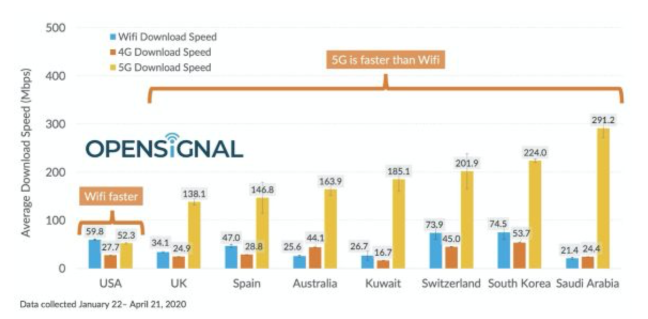Vertical Divider
BBB Chastises Verizon for Misleading Advertising
May 17, 2020
The Better Business Bureau’s (BBB) advertising arm is taking Verizon to task for using stadium installations as proxies to overhype its modest 5G expansion elsewhere. They told Verizon to stop claiming that it was “building the most powerful 5G experience for America” and recommended that the carrier make clear and conspicuous disclosures to consumers about the limited actual availability of its 5G network. While Verizon has agreed to update its disclosures, it will appeal the NAD’s objection on its network construction claims to the National Advertising Review Board. U.S. 5G deployments have thus far failed to deliver on the 5G standard’s bold promises. Consumers and businesses were promised 10 to 100 times faster mobile and fixed broadband speeds, as well as single-digit millisecond latency and remote industrial benefits, sparking widespread interest in the new technology. But early U.S. 5G networks have ranged from tiny (Verizon) to fuzzy (AT&T) to large and slow (T-Mobile), depriving most potential customers of those expected benefits, despite general eagerness to market “5G” as a reason to invest in new devices and services. 5G networks elsewhere in the world are delivering much faster average speeds, in some cases covering much larger percentages of the population.
Figure 1: International Network Performance Comparison
May 17, 2020
The Better Business Bureau’s (BBB) advertising arm is taking Verizon to task for using stadium installations as proxies to overhype its modest 5G expansion elsewhere. They told Verizon to stop claiming that it was “building the most powerful 5G experience for America” and recommended that the carrier make clear and conspicuous disclosures to consumers about the limited actual availability of its 5G network. While Verizon has agreed to update its disclosures, it will appeal the NAD’s objection on its network construction claims to the National Advertising Review Board. U.S. 5G deployments have thus far failed to deliver on the 5G standard’s bold promises. Consumers and businesses were promised 10 to 100 times faster mobile and fixed broadband speeds, as well as single-digit millisecond latency and remote industrial benefits, sparking widespread interest in the new technology. But early U.S. 5G networks have ranged from tiny (Verizon) to fuzzy (AT&T) to large and slow (T-Mobile), depriving most potential customers of those expected benefits, despite general eagerness to market “5G” as a reason to invest in new devices and services. 5G networks elsewhere in the world are delivering much faster average speeds, in some cases covering much larger percentages of the population.
Figure 1: International Network Performance Comparison
Source: Opensignal
Verizon’s has over 100 million wireless customers and has aggressively promoted 5G for two years. Yet Verizon’s 5G rollouts have been almost comically spotty, covering only “parts” of over 30 cities, with outside estimates of roughly 3% coverage in some supposedly served areas. In some cases, Verizon’s 5G is available largely in stadiums or airports — retrospectively bad bets in 2020 — but the ads cited by NAD implied that the carrier’s “powerful” 5G performance was widely available elsewhere and would be coming wherever the ads were being shown.
|
Contact Us
|
Barry Young
|

